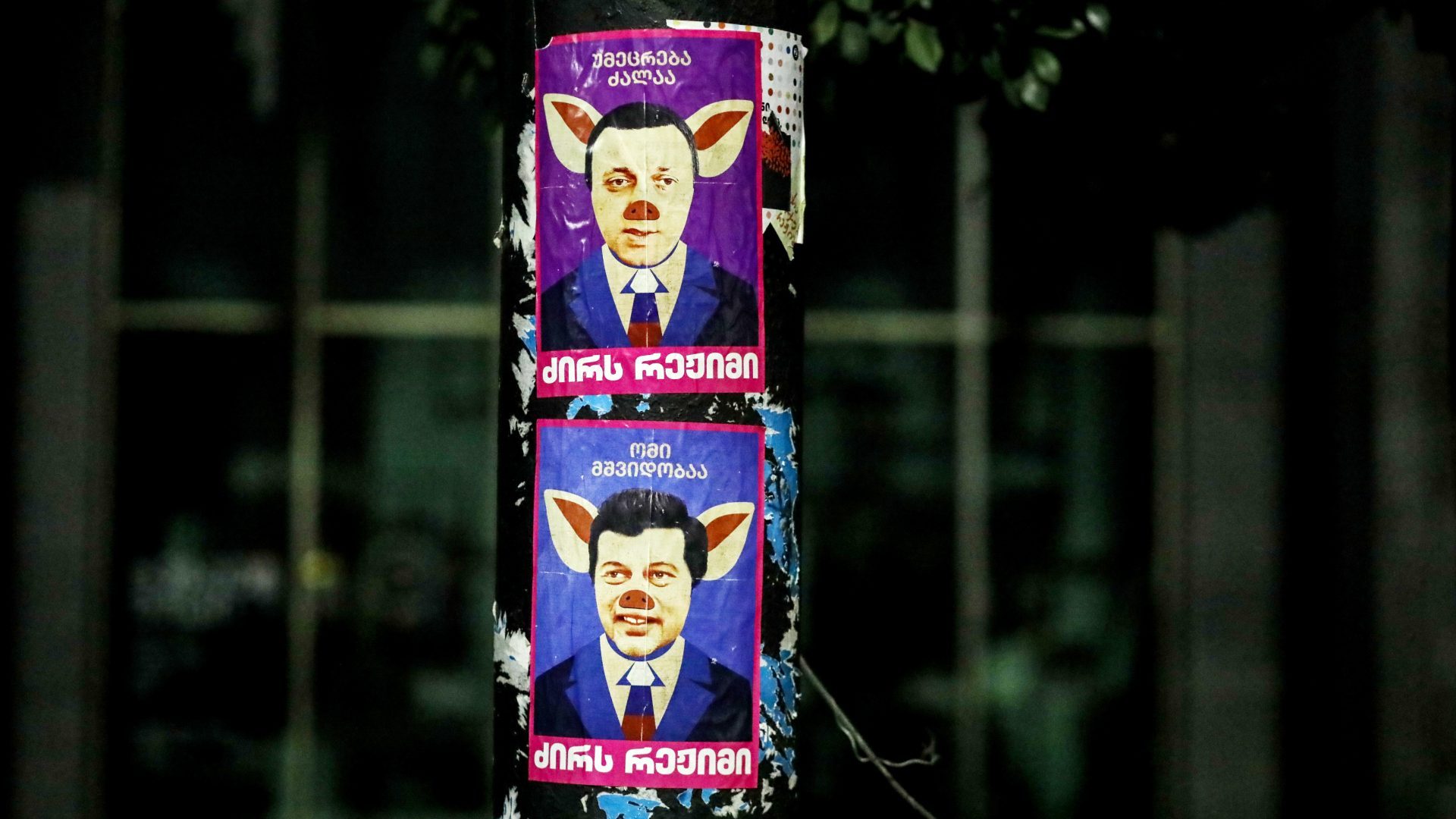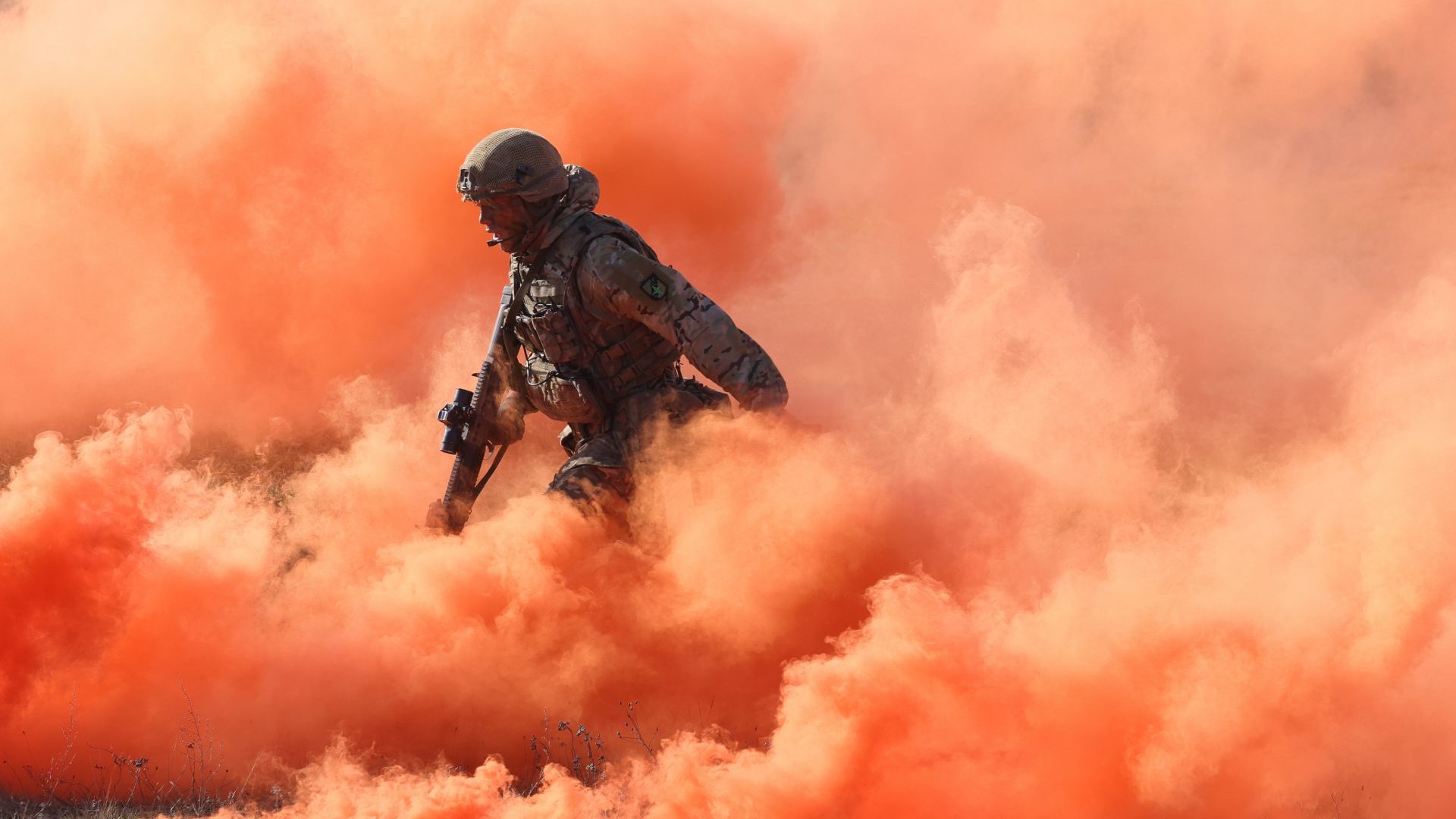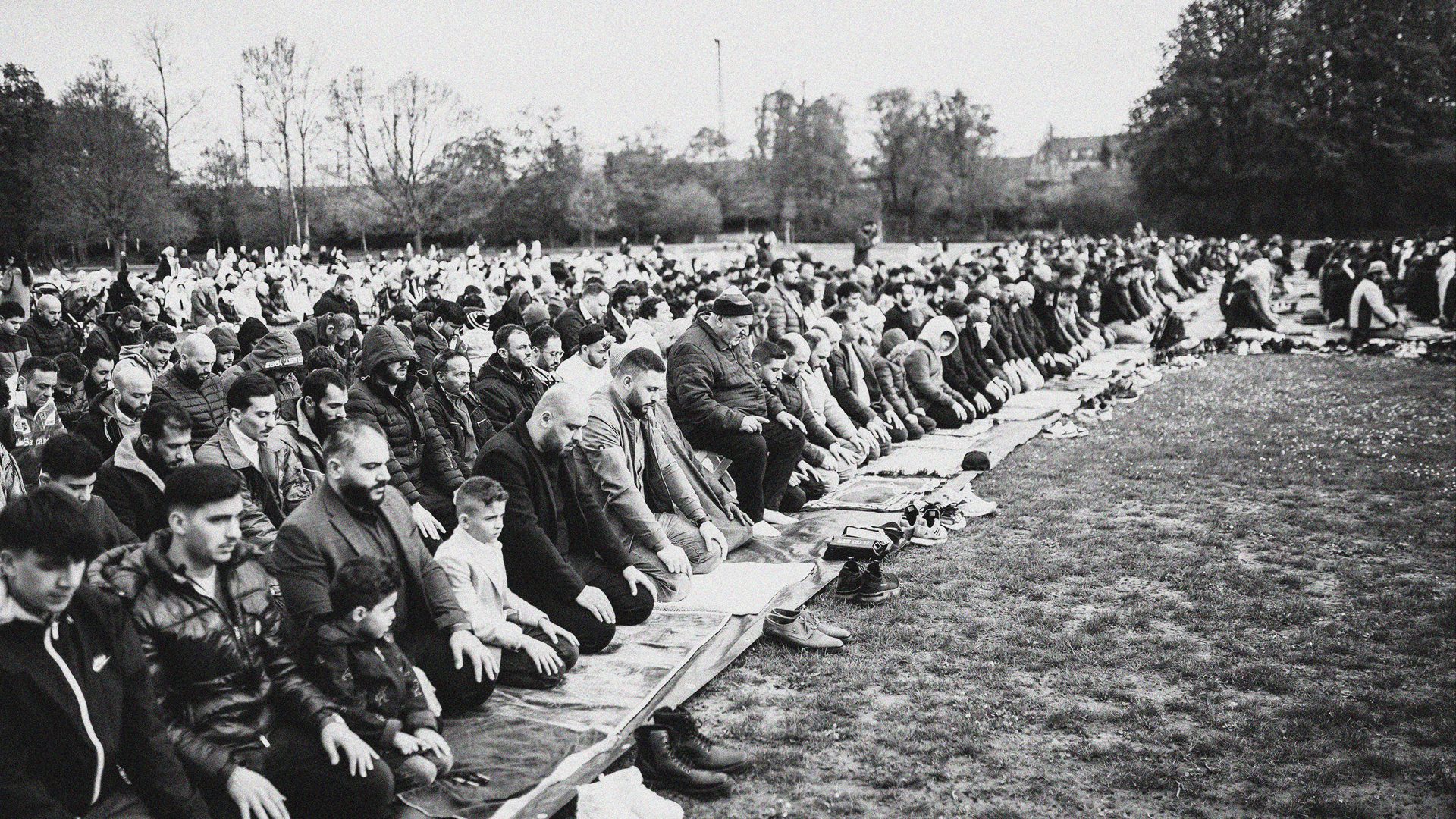“Look! There’s a rally!” cries out a young boy behind me as I head towards the Pantheon in Paris. He and his friend burst into La Marseillaise. “Oh, wait – what’s this flag?” one of them abruptly stops singing. “These are the English!” the boy exclaims, trying to recall the words to the British national anthem.
But the red-and-white flags held by the crowd are not English – they are Georgian. Around 100 people have gathered at Place du Panthéon in solidarity with the ongoing protests that have gripped Georgia since last autumn. Unrest erupted after the pro-Russia Georgian Dream party, founded by billionaire oligarch Bidzina Ivanishvili, took power following a highly contested election marred by reports of voter intimidation and fraud. Ivanishvili was granted French citizenship in 2010. In 2021 he was awarded the Légion d’honneur, the country’s highest honour.
“Sakartvelo!” the crowd chants, the Georgian name for their country. Some protesters hold up signs displaying images of their compatriots severely beaten during demonstrations back home, alongside portraits of political prisoners. Banners read: “This government does not represent the Georgian people” and “Stop Putin, stop oligarchy”.
“Not only does the oligarch Ivanishvili hold French citizenship, he has even been granted a Légion d’honneur,” says George, a film-maker who splits his time between Paris and Tbilisi. He’s draped in a European flag. “He’s a French citizen who is currently setting up a dictatorship in our country. Definitely not a great look for France. We are asking the French president and government to take action against their own citizen.”
In Tbilisi, no one has escaped the crackdown. “It’s hard to find someone who doesn’t have a friend or relative who has been arrested,” George says. “Some of my friends were released showing clear signs of torture. Andro Chichinadze, an actor I know, has been in prison for over a month now. I attended his hearing – the prosecutor was supposed to present evidence against him, but they had nothing. So they simply asked the court for more time to look for it.”
This grim display of justice is all too familiar. The Georgian courts are becoming increasingly Russian.
Ana, who works for France’s postal service, shakes her head at the rhetoric of the Georgian officials. “Before, they at least tried to adapt Russian propaganda for their home audience. Now they just repeat it word for word,” she says. “They claim that the west is trying to destroy Georgia. I can understand how this argument might work in Russia, but Georgia? Why on earth would the west want to destroy Georgia?”
As the march moves towards Place Saint-Michel, the protesters chant: “Putin, out of Georgia! Out of Ukraine!” Raphaël Glucksmann, a Member of the European Parliament with close ties to Georgia, takes the microphone. He spent three years as an adviser to former president Mikheil Saakashvili, who has been imprisoned since his return from exile in 2021.
“What we are witnessing is a hijacking of a nation that used to be at the forefront of the pro-democracy fight, by a pro-Putin oligarch with a French passport,” he says. “France has a special responsibility to act. How come Ivanishvili’s castle right outside Paris has not been seized yet?”
Glucksmann warns that Europe is at a crossroads: act now or risk surrendering the entire South Caucasus to Vladimir Putin. Europe’s leniency towards Putin has already led to war.
Clément, a French activist, is draped in a Ukrainian flag. He has recently witnessed his fellow activists prosecuted and attacked in Serbia, Belarus, Russia, Iran – and Georgia.
“My Georgian friends get arrested all the time,” he says. “The French government must explicitly support Georgian civil society fighting for democracy.”
Gocha Javakhishvili, a former Georgian ambassador to France, resigned over the recently passed Russian-style “foreign agents” law, which punishes Georgian people and organisations that receive foreign funding. Addressing his compatriots, he says these protests in their homeland are the largest in a century.
“Not since 1905 has the country witnessed such widespread demonstrations, even in small towns,” he says. “The real Georgia is in the streets today.”
Svetlana Lazareva is an independent multilingual journalist based in Paris




